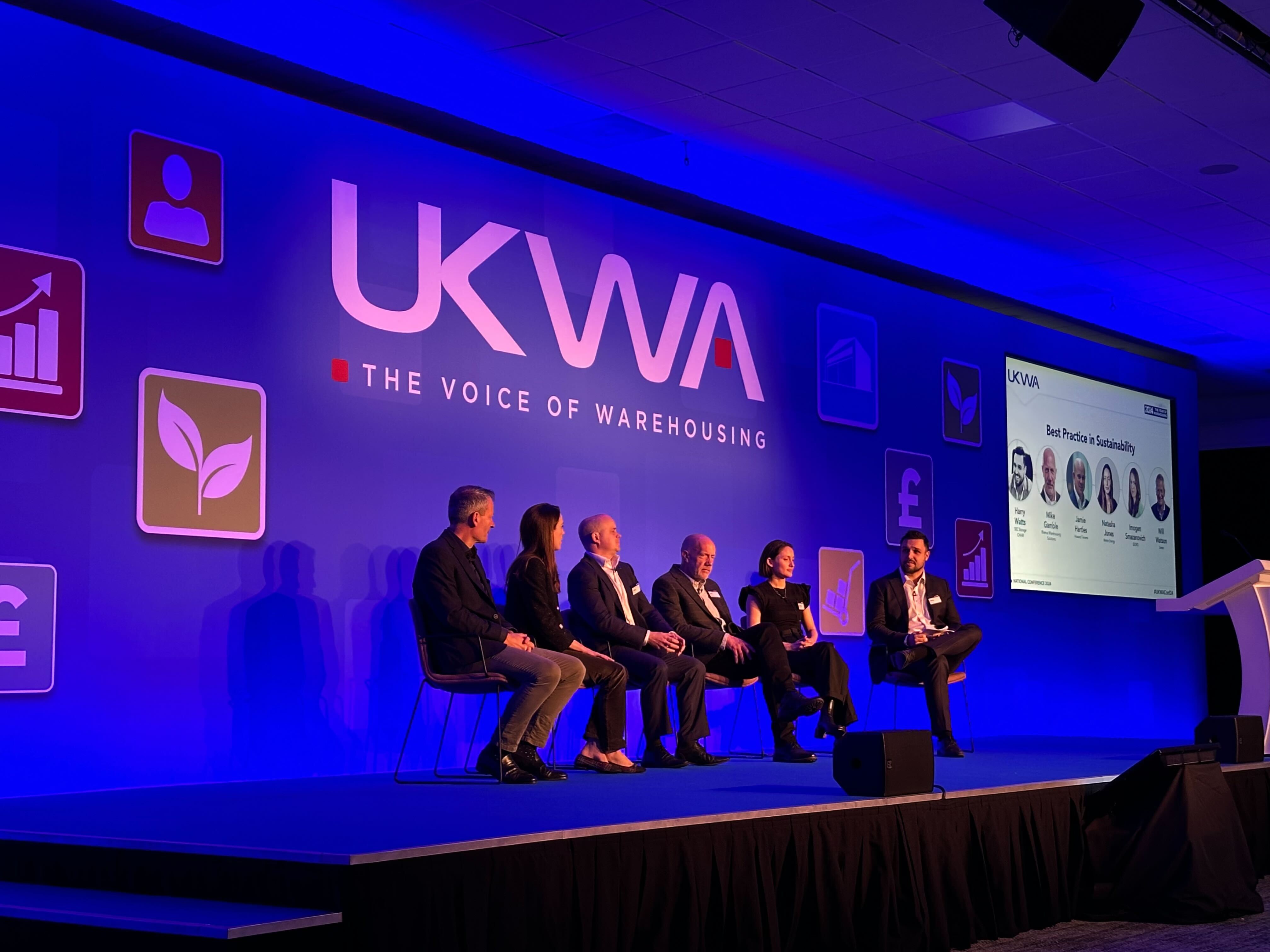UKWA panel highlights | Best practices in sustainability
By: Holly Homewood

If you missed the UK Warehousing Association’s national annual conference this year, then you would have also missed out on an insightful panel that covered one of the most pressing issues of the modern world - climate change.
Harry Watts from SEC Storage expertly chaired the session that included CEO & Co-founder of Metris Energy, Natasha Jones, along with Jamie Hartles from Howard Tenens Logistics, Will Watson from Zestec, Mike Gamble from Rhenus Logistics, and Imogen Smazanovcih from Segro.
Warehousing alone is responsible for 25% of global carbon emissions, which means adopting sustainable practices can have a huge impact on the prosperity of our planet.
The panellists covered a wide variety of results-driven initiatives including building a sustainability-focused culture, installing solar systems, reporting on decarbonisation, and the question on everyone’s mind - is sustainability profitable?
Challenges in sustainability best practices
Rhenus Group’s campus generates its own renewable energy with solar panels but the pre-solar installation process had originally been a barrier to installing. The design of the panels needed to be very specific, taking into consideration panel maintenance, grid operator requirements and avoiding the internal lighting system. As well as design challenges, the landlord’s permission also needed to be obtained before going ahead.
Another challenge is reporting on the impact of green initiatives. With no standardised way to report on carbon emissions, it’s difficult to understand what good looks like, and as an industry, we run the risk of greenwashing.
Culturally, what's needed to make sustainability changes within a business?
To make a company more sustainable, being open to change is important, as well as ensuring that sustainability is at the forefront of everyone’s mind, not just something that falls to those in sustainability roles.
Technology to look out for
With the whole globe focusing on climate change, sustainability technologies are often innovative and quickly adopted by influential businesses. The panellists listed the following technologies to look out for:
Increased and more efficient use of batteries
Electrification of buildings and transportation
Hydrogen-fuelled fleet vehicles
Howard Tenens Logistics has recently switched its diesel HGVs for Hydrotreated Vegetable Oil at its Andover depot, reducing the HGV’s emissions by a staggering 92%.
Lastly, can sustainability be profitable?
The panel unanimously agreed that sustainability can be profitable, but that the upfront cost of green projects can often put businesses off. However, if your pockets aren’t deep, there are plenty of viable financing options available and the long term gain includes attracting better talent, appealing to investors, and saving money long term - especially if you’re relying on renewable energy at a time when the cost of fuel is so volatile.
Zestec has been working with Amazon to install solar panels and it’s not only felt the impact on reducing emissions and saving costs, but on attracting top talent, as sustainability becomes more important to employees.
Key takeaways
The whole business needs to be bought in on sustainability. Whether it’s through education, goal setting or incentivising, the company needs to believe in climate action.
Installing solar can be hard work, which is why businesses are partnering with solar experts to navigate the tricky parts - design, planning permission and PPAs.
The future is bright with a predicted focus on hydrogen-fuelled fleets, more possibilities with batteries and the electrification of buildings.
In the short term, green initiatives might not feel profitable but be patient - you will reap the rewards.
If you want to find out how much it will cost your business to install solar, and how quickly you’ll see ROI, complete the form to get started.